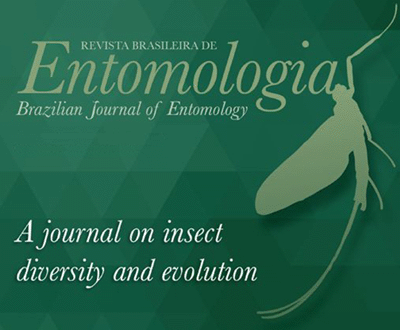Insects have been considered as important bioindicators of environmental changes and habitat quality. In spite of its sessile habit, easy localization, abundance and host specificity, insects that induce galls have not been utilized in studies of this nature. It was investigated the suitability of gall-inducing insects associated to two ruderal host plant species (Baccharis dracunculifolia and Vernonia polyanthes: Asteraceae) as bioindicators of habitat quality. The following questions were addressed: (i) is gall-inducing insect diversity influenced by different types of land use?; (ii) are the responses of galling insect communities different between host plants?; (iii) how does the biotic and physical features of the biotope influence the gall-inducing insect diversity? It was found 6,226 galls, belonging to six galling insect species on V. polyanthes and 11 galling species on B. dracunculifolia. No difference was found in galling species richness among land use types. Nevertheless, gall-forming insect abundance was statistically different among the biotopes studied. Insect galls were more numerous in biotopes with lower urbanization levels. Gall abundance showed a strong and positive relationship with the percentage of vegetal cover. Gall-forming insect communities on both host species showed differential responses to the different land use types. The results suggest that three factors may be involved with galling insect diversity in urban areas: (i) habitat structure in the biotope; (ii) resource abundance (host plant abundance and distribution); and (iii) frequency and intensity of management in reserves, parks, city squares, wastelands found at a given urban area.
Bioindicator species; biotopes; host plants; insect galls; urban-rural gradient










